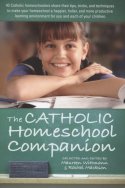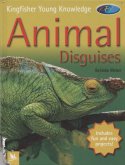From the love2learn.net
Lent page.
Many people think of "sacrifice" as an old-fashioned word - perhaps pre-Vatican II - that really doesn't have a place in modern life. They may be willing to make New Year's Resolutions or go on a diet, but have no interest in the spiritual idea of sacrifice. Once I heard a homily for the beginning of Lent in which the priest said that you shouldn't worry about giving up your favorite candy bar or soap opera, because it was internal change that mattered.
Internal vs. External: It's a strange thing in a world so caught-up in superficiality for Catholic ideas on sacrifice to be thought of as shallow. It's kind of like saying that you shouldn't exercise because what you eat is really more critical for bodily health.
What this priest didn't realize, of course, is that internal changes don't happen instantly, they usually need help from something external. If you have trouble loving someone, the first step is to act loving to them externally, even if you don't feel it internally. If you work on this enough and ask for God's assistance, your internal struggles will resolve themselves as well.
Even so, it takes an internal effort of your will to make an external thing happen. (This same priest also thought that external gestures of respect in church were meaningless and unimportant to God. But external things are helpful in lifting our minds and hearts to God. Beautiful paintings, statues and crucifixes assist our wandering thoughts in focusing on God and the great things he has done for us.)
In a nutshell: because we are both body and spirit, internal and external factors work together in our spiritual lives. The greatest example of this concept is that God really came to earth as a small baby and lived life among us in all its gritty reality.
Exercising the will: I know a man who runs a Karate school which emphasizes discipline of the mind and body. He encourages his students to occasionally give up a candy bar or sweet that they would otherwise eat. He explains that if they can't say no once in awhile to something little that looks good, how will they ever be able to say no to something more important later on? It's all about training the will (as in "willpower").
Even this simple concept is useful to us as Catholics. If we exercise our will by saying no to little things, we will be better prepared to resist temptation later on. There are other earthly benefits as well, since we often give up things that aren't good for us anyway (I never could understand why the above-mentioned priest didn't realize that giving up soap operas has direct spiritual benefits as well).
Natural AND Supernatural Benefits of Sacrifice: One exciting thing to me about understanding the faith is that natural and supernatural benefits go hand in hand. Yes, giving up sweets for Lent might help us lose weight or live a healthier lifestyle and giving up television gives us more time for reading or to spend with our family. These are certainly good things. But as Catholics, we realize that there's another whole level to look at too. When we offer our small sacrifices up to God with love He turns them into something much better and allows us to participate in His plan of good for the world.
For more about this concept, you can read up on St. Therese of Lisieux and her "Little Way." I think Mother Teresa of Calcutta is another excellent example of God taking the simple, humble work of one person and turning it into something much greater and bigger.
As a simple way of illustrating this for our children, we have them place a simple dry pinto bean in a jar for each sacrifice or good deed they perform during Lent. They enjoy watching this grow and are certainly proud of their little accomplishments. But when they wake up on Easter morning, the dry beans have been replaced with colorful Jelly Beans.
This simple tradition allows them to better understand the sacrifice of Jesus on the cross and his resurrection from the dead. Our little sacrifices are made much more meaningful by his big sacrifice. He allows even the smallest child to participate in "the good" by sharing in his sacrifice.
As a wife and mother I have really come to love and even look forward to Lent because it has become a time in which we clean-up our spiritual house as a family and re-focus our energies on God. In the craziness and busy-ness of family life, we can often get carried away with too many sweets and movie-watching and other things which make life a little more comfortable and which are not evil in-and-of-themselves. But we begin to see that these things can also, just by their power of distraction, start turning our family farther from God and the way we want to be.
One place we really see God's understanding in our need for external things to help with the internal changes is the happiness he allows us to feel when we do something good. It is this Christian joy that even small children can begin to appreciate by celebrating Lent with their family. In addition, Easter becomes so much more meaningful and joyful when we have prepared for it well during Lent.
 Don't blame me, it's all her fault. :)
Don't blame me, it's all her fault. :) I'm having others review this book for love2learn and Heart and Mind, but I just finished the book and wanted to share some highlights.
I'm having others review this book for love2learn and Heart and Mind, but I just finished the book and wanted to share some highlights.
 We've been going through the Mitchell's series by Hilda Van Stockum (from Bethlehem Books) at bedtime and just finished the second book tonight. We haven't made it through this far in the series for quite a few years, so we all enjoyed it - all the way down to Kate.
We've been going through the Mitchell's series by Hilda Van Stockum (from Bethlehem Books) at bedtime and just finished the second book tonight. We haven't made it through this far in the series for quite a few years, so we all enjoyed it - all the way down to Kate.
